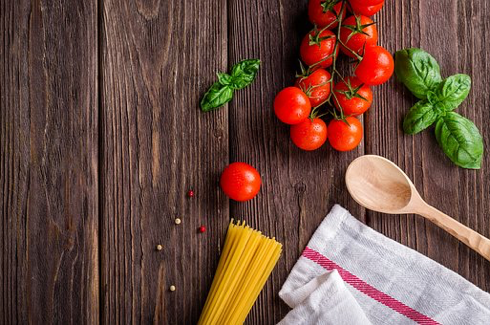


With concerns about the health of our bodies and our planet looming, people want to take action to bring a cleaner, more livable environment. There are many options such as clean energy, low emission vehicles, non-GMO food sources, organic cleaners, and recycling.
It was once thought that an environmentally friendly lifestyle was more costly, but that couldn’t be further from the truth. This article contains tips that can help you “go green” on a budget. You may even find yourself saving money in the long run. Read further to see how you can live a cleaner, healthier life by just making a few small changes.

Even just doing a few things each day can help! Anything from sorting your trash between waste, and recyclables to using earth friendly cleaners in your home. The best part is you don’t even really have to spend money to do it. Try these easy tips:
1. Use Natural Cleaners
This is one tip that will actually save you money, while reducing chemicals in your home. You can make natural cleaners from common items in your kitchen. Things like vinegar, baking soda, lemons, and even table salt can all be make into cleaning products that are environmentally safe. They can kill off bacteria, leave things squeaky clean, and protect your health.
2. Try Old Fashioned “Scratch Cooking”

While we are on the subject of food, “scratch cooking” is one way to clean up your diet and the environment. Processed food items contain several chemicals that introduce toxins into our bodies. The excess packaging on processed foods generates mountains of waste in landfills, as well.
Try buying up fresh veggies in bulk and experiment with your own sauces, gravies, and even bread making. This will save you money, and help reduce your carbon footprint.
3. Walk When Possible
If you live close to work, school, or shopping try to walk if weather permits. Driving a car, even on short trips, emits pollutants into the environment. If every person cut out one car trip a day, the air would be much less polluted. It also benefits your health, promotes weight loss, and relieves stress.
If walking isn’t possible, the next best options are ride sharing with friends, or public transportation.
4. Have a “Meat Free” Night Each Week

If you want to know how to be more environmentally friendly, turn your thoughts to animals that are used for food. Beef production emits enough carbon into the atmosphere to harm vegetation. Meat can also be a huge cost to your grocery bill, and increases medical costs.
Try having “meatless mondays” and switch to a nice veggie stir-fry, cooked bean dishes, or even a serving of wild caught fish.
5. Do Clothing Trades
Believe it or not, the clothing industry is a large source of pollution. All the way from production, to shipping, and even disposing of old clothes. Your friends may have great clothes that you like, or even kids that wear a size larger or smaller than yours.
Find friends you can trade clothing items with for a “new-to-you” wardrobe. The next best thing is to shop the thrift stores first, before you buy new clothes. You can find great seasonal items like sweaters in fall, shorts in the summer, and coats in winter.
6. Ditch Disposable Products
Disposable products like paper towels, serving saver containers, plastic silverware, and even food wraps cause a tremendous strain on the environment. Most of this is lack of biodegradability. Plastic remains buried in landfills for up to 1,000 years. That is a long time!
You can trade plastic wrap for all-natural cotton and beeswax wraps. It’s no fun, but use washable dishes instead of styrofoam plates and plastic silverware. If you are having a party, try renting dishes for the event. Save up glass jars to use as leftover or food storage containers. Lastly, buy cotton towels and napkins for kitchen use that can be washed, and reused.
7. Use Grey Water

How to be more environmentally friendly? If you turn on the hose to water your garden, try collecting “grey water” to give your plants a drink. Greywater is water that is left over from basic things like; rinsing fruits and vegetables, rainwater collection, and dishes. If you live in a drought ridden area, this can help reduce the amount of water you use by gallons!
Keep a bucket under your kitchen sink, instead of allowing water to go down the drain, undo the u-joint pipe and drain into the bucket. Take it outside and throw it on the garden. If you get a good rainstorm, just set the bucket outside. Save this rain water for a dry day and use it to give your plants a drink.
8. Minimize Electrical Usage
Did you know over half of the plugs in electrical outlets are draining electricity, even if the appliance or light is off? A plug in a socket still has electricity flowing to it when not in use. The only way to completely stop the current is to unplug the item. The plants that generate electricity make up as much as 40% of the greenhouse gasses found on this earth.
Let’s face it, you need your refrigerator to keep your food cold. You may also want to leave appliances plugged in that have clocks to tell time, or ones that you use often during the day. Other than that, if you don’t use it often, pull the plug.
9. Remember Your Bags

We’ve all done it. We get to the checkout line at the store and realize we forgot our reusable shopping bags. It is estimated that up to a trillion plastic shopping bags are used each year. 300 million of those end up in the ocean, resulting in the death of marine life. The ones that end up in landfills can take hundreds of years to break down.
How to be more environmentally friendly? An easy way to remember your bags is to place them in the trunk of your car, and keep them there. Keep a little reminder on the dash of your car so you remember to take them in with you.
10. Compost Food Waste
Even seemingly harmless food waste can create “greenhouse” gasses. When rotting food is buried in a landfill, it creates methane gas as it breaks down. Some foods can take years to break down.
Take any fruit and veggie waste, coffee grounds, egg shells, and peelings. Throw them into a corner of your garden and cover with fresh dirt. Every few days turn the soil to encourage even break down of the materials. After a few months, the food waste will compost down into a nice dark substance that you can shovel in with your garden soil.